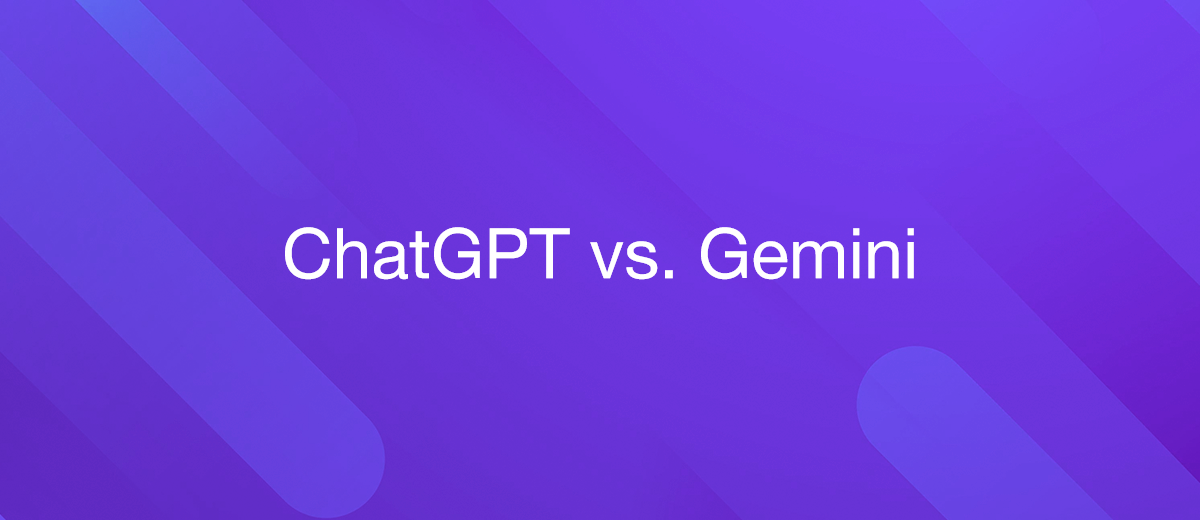ChatGPT vs. Google Gemini: Detailed Comparison
Until recently, ChatGPT was considered the flagship among chatbots with artificial intelligence, but after the emergence of a serious competitor in the form of Google Gemini, its position began to weaken. Both systems have many advantages and claim to be the best AI chatbot on the market. Considering the relevance of this topic, we have prepared a detailed review-comparison of ChatGPT vs Gemini.
What is ChatGPT?
ChatGPT, released by OpenAI in November 2022, immediately became a leader in the AI chatbot industry. Its first version was developed based on the GPT-3.5 language model, which has extensive capabilities for generating, analyzing, and processing natural language. It can write text of different types, topics, volumes, and translate it between many languages. In addition, the model can conduct a dialogue with users and answer their questions, solve tests and problems, write, check, and correct program code.
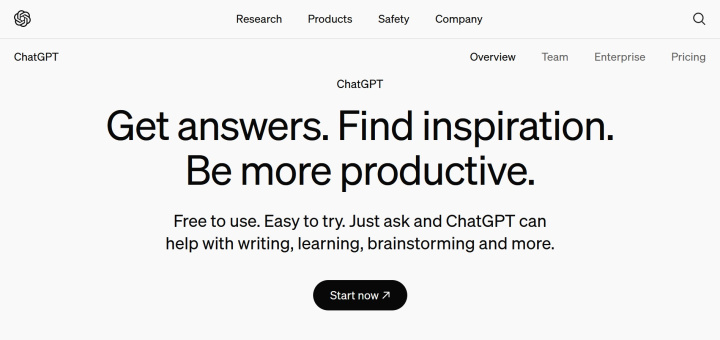
In March 2023, the developers updated their bot to GPT 4.0. This made it even more powerful and functional. The improved language model allowed ChatGPT to create and process larger amounts of text — up to 25,000 words per response. Additionally, it gained the ability to analyze images, more accurately recognize the context of requests, and better adapt to the style of dialogue. The main advantage of ChatGPT 4 was the internet connection, thanks to which the bot began to receive more complete and up-to-date information for answers.
In April 2023, the next version of the smart chatbot appeared – GPT-4 Turbo. This modification processes up to 128,000 tokens, which gives it the ability to analyze up to 300 pages of text in a single request. It supports up to 4096 withdrawal tokens. Its input tokens are 3 times cheaper and output tokens are 2 times cheaper than GPT-4. Turbo can only be accessed through the OpenAI API. ChatGPT 3.5 (for free accounts) and ChatGPT 4 (for ChatGPT Plus or ChatGPT Team subscribers) are now available to regular users.
On May 13, 2024, OpenAI introduced the next update for its chatbot – the GPT-4o language model (“o” stands for “omni”). The developers endowed it with the ability to reason and work with audio, video, and text. It can respond to incoming audio data in real time, generate text, translate it into different languages, create various types of creative content, and answer user questions in an informative way. The novelty understands the emotions and tone of the speaker and has a sense of humor. GPT-4o is available free of charge and is also available as part of a paid Plus subscription. The API of this model is available to developers.
What is Google Gemini?
The Gemini chatbot (formerly Bard) was introduced by Google DeepMind in December 2023, later than competitors' products. Long-term development has allowed to create a powerful multifunctional AI service with the potential to become a new industry leader. A universal smart bot works with text, code, images, video, and audio. Its abilities allow it to create, analyze, modify, summarize, and combine content. It can be used on almost any device, from smartphones to data centers.
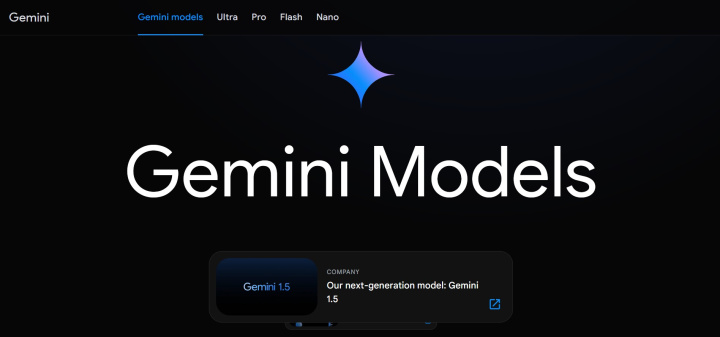
The chatbot with the Gemini 1.0 model is available in three versions: Nano, Pro, and Advanced. The first is the least voluminous and resource-demanding, which allows it to be run on mobile devices. The second has an optimal balance of power and resource intensity, making it suitable for a wide range of tasks. Finally, the full-featured Gemini Advanced version provides maximum capabilities and is used for the most complex and resource-intensive processes.
In February 2024, DeepMind released a new version of its AI bot, Gemini 1.5 Pro. Its main improvement concerned the understanding of context. It has become more expanded. The updated model processes up to 1 million tokens, allowing it to analyze large texts, videos, and code snippets. It is currently available to authorized developers and corporate clients of the company through the Google AI Studio and Vertex AI platforms. In the future, Google plans to open access to Gemini 1.5 Pro to ordinary users. For now, they can only use the Gemini 1.0 line of models, including Gemini 1.0 Ultra with a paid Gemini Advanced subscription.
On May 14, 2024, another new product was presented at the Google I/O conference – Gemini 1.5 Flash. It is a compact, multi-modal model designed to scale efficiently and handle specialized, high-frequency applications. It comes with a breakthrough contextual window of 2 million tokens and is already offered in public preview via the Gemini API on the Google AI Studio platform. In addition, the Gemini 1.5 Pro model, which debuted in February, received an update. Its context window has also expanded to 2 million tokens. Developers interested in this update should sign up for the waitlist. Gemini 1.5 Flash is performance-focused, making it ideal for fast, real-time client responses or on-the-fly image generation. Gemini 1.5 Pro, with more power, is similar in functionality to Gemini 1.0 Ultra and is better suited for analyzing and summarizing scientific texts. Both models are capable of processing text, images and video.
Now that you have a basic understanding of the most popular AI chatbots, let's compare Gemini and ChatGPT. Let's look at how these AI assistants differ from each other, whose functionality is better, and which one costs less.
Google Gemini vs ChatGPT: Features
ChatGPT and Gemini demonstrate high functionality when performing a wide range of tasks. At the same time, they have some differences regarding not only the methods for solving them but also the results produced. Let's analyze how both chatbots search for the requested information, whose generative abilities are more powerful, whose interface is more convenient, and also how add-ons help them expand their functionality.
Search for information
As a data source, both neural networks use datasets loaded into them and numerous internet resources, including websites, social networks, articles, and books. The online search feature is only supported by the paid version of ChatGPT.
Gemini has internet search available in the free Nano and Pro versions. Moreover, Google's chatbot uses combined text and image databases such as LAOIN-5B. This gives it an additional advantage.
Generative abilities
ChatGPT 4 Turbo is capable of processing up to 300 pages of text in one request. It easily creates advertising and fiction texts, web content, poetry, scripts, and code for programs, describes images, and summarizes and translates texts in 95 languages. The free version of ChatGPT 3.5 also copes well with generative tasks.
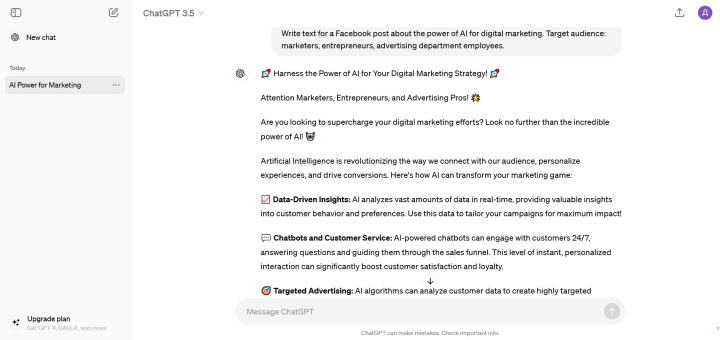
Gemini, like ChatGPT, creates, analyzes, and translates various text and code formats in 40+ languages. In addition, the multimodal neural network is capable of generating images based on text queries or other images.
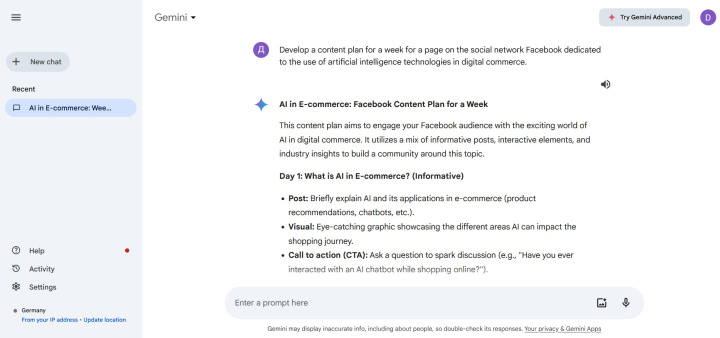
Interface
ChatGPT offers a simple, minimalistic console that is not overloaded with too many details. In the center of the page, there is a dialog box with suggested query options, and the panel on the left shows chat history and a list of connected extensions. At the top of the page, there is a switch between GPT 3.5 and GPT 4, as well as an automatic history clearing mode. There are separate quick access buttons for editing questions, rating, and regenerating answers.
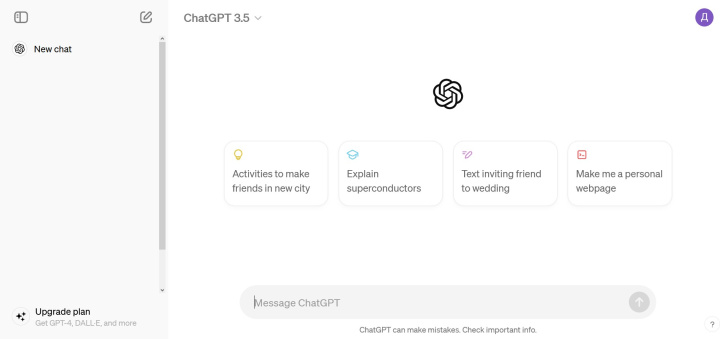
Gemini has an equally convenient modern interface with many quick access buttons. They allow you to double-check the information provided by the chatbot, mark its responses as “good” or “bad,” save them as templates, send them to Gmail and Google Docs, and export them to other formats. The entire history of using the neural network is recorded in the activity log.
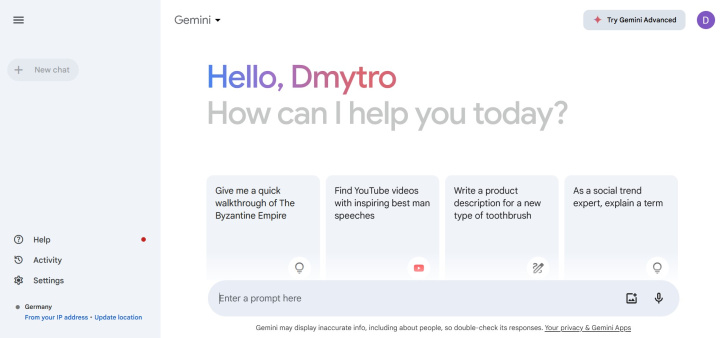
Add-ons
One of the most promising features of both chatbots is add-ons that significantly expand their standard capabilities. In January 2024, OpenAI introduced the GPT Store, a marketplace for custom versions of ChatGPT, available to owners of paid subscriptions. There are now over 3 million AI services developed on ChatGPT by third parties. For convenience, they are divided into categories (text writing, programming, education, science, and others).
When comparing Google Gemini vs ChatGPT according to this criterion, it is worth noting that Gemini also has its own marketplace of add-ons for integration with Google services and applications. Its add-ons resemble Google Chrome browser extensions. With their help, users can automate a number of tasks and processes. For example, they can create email newsletters and presentations, search for information in their inbox, receive AI recommendations for places or activities based on Google Maps data, and so on. Gemini add-ons are currently only available for Google Apps.
Gemini vs ChatGPT: Differences
We found that smart chatbots from Google and OpenAI are similar to each other in a number of ways, including functionality, interface, and the tasks they perform. Despite this, they have a number of significant differences:
- Language model. This is the main difference between Gemini and ChatGPT. As for ChatGPT, it is based on unique LLMs (GPT-3.5, GPT-4, GPT-4o) with different capabilities developed by OpenAI. If necessary, you can switch between them. Gemini offers a wider range of LLMs. It consists of three versions of Gemini 1.0 (Nano, Pro, Advanced) and the most powerful at the moment Gemini 1.5. Interestingly, all these models were created by Google DeepMind not from scratch, but by modifying other neural networks (LaMDA, PaLM 2).
- Dataset. The most powerful among the publicly available models today, Gemini Advanced, has a dataset with 1.6 trillion parameters. A dataset of 1.56 trillion words was used to train it. The GPT-4 model underlying ChatGPT has about 1.5 trillion parameters. It was trained on a dataset of 13 trillion tokens, which included individual characters, words, and phrases.
- Self-learning. This is the key difference between ChatGPT and Gemini. OpenAI's chatbot learns independently as it communicates with users, understands the context, and takes it into account in subsequent requests. The capabilities of the Google bot in this direction are still very limited.
- User experience. Both systems are available via a web interface and mobile applications (iOS, Android). ChatGPT is further integrated into Microsoft Windows services, including Word, Excel, PowerPoint, and Outlook. In addition, its native LLM GPT-4 is used in Microsoft's AI assistant Copilot and the Bing internet browser. Unlike ChatGPT, Gemini 1.0 does not support API integrations. This feature is only available in the new version 1.5. However, it is available through the Google Docs, Gmail, Google Meet, and Google Slides applications as part of Google One AI Premium.
- Access to the internet. In comparison ChatGPT vs. Google Gemini, this criterion is one of the most important. All versions of the Gemini neural network, including the free, can be accessed on the World Wide Web. This sets Gemini apart from ChatGPT, which provides online information search exclusively for paid subscriptions.
- Editing requests. Google chatbot users can make changes to queries sent to the bot. The OpenAI product does not provide this option.
- Working with images. Gemini has native tools for generating images and speech, as well as searching for images on the internet. ChatGPT doesn't have this. However, the latter creates text queries to generate images through the integrated DALL-E neural network.
Gemini vs ChatGPT: Pricing
Both platforms offer flexible pricing with plans for personal and enterprise users. Their options include both fixed-price tariffs (convenient for a mass audience) and detailed plans with payment for the selected power and/or volume of resources (convenient for developers). Having a free plan is an important advantage of Gemini and ChatGPT.
Currently, ChatGPT offers the following tariffs:
- Free – a free plan with unlimited access to a GPT-3.5-based chatbot through the web interface and mobile application.
- Plus – a plan for individual users. By subscribing to it, they get access to a GPT-4 based chatbot, GPT Store model catalog, advanced data analytics, DALL-E integration, and other additional features. Cost – $20 per month.
- Team – a plan for teams with all the features of the Plus plan, as well as an increased message limit, an admin console, and the function of developing and sharing GPT models for your team. Cost starts from $25 per month per user.
- Enterprise – an enterprise plan that includes all Team features, plus unlimited access to GPT-4 and related tools, increased query length, analytics, and a number of additional features. The cost is calculated individually and is available upon request.
Google provides a basic version of its chatbot for free for mobile (Gemini Nano) and desktop (Gemini Pro) devices. The most powerful version of the Gemini Advanced bot can be obtained by subscribing to the Google One AI premium plan for $19.99 per month. In addition to unlimited access to all the capabilities of the neural network, it allows you to use Gemini in other Google services. Subscribers also receive 2 TB of cloud storage. When you purchase Gemini Advanced for the first time, a free trial period of 2 months is activated. Early API access to the latest Gemini 1.5 model costs $7 for 1 million input tokens and $21 for 1 million output tokens.
Conclusion
Gemini and ChatGPT deservedly take their places at the top of most ratings of AI chatbots on the market. Both services have outstanding power, flexibility, and broad capabilities in solving different problems. However, after comparing Gemini AI vs ChatGPT with us, you've probably noticed that they each have both strengths and weaknesses. ChatGPT is optimal for companies and professionals who need a universal and functional tool for generating content, analyzing data, and interacting with clients. The presence of a full-fledged API provides ChatGPT with deep integration with third-party systems.
Gemini's strength is its user experience. Google clearly wanted to make its chatbot as user-friendly as possible, and in many ways, it succeeded. While ChatGPT is focused on functionality, Gemini focuses on ease of use. It is helped in this by a perfectly polished interface, unlimited internet access, and support for image generation. After the release of the new version of the Gemini 1.5 neural network, it may well surpass ChatGPT in other criteria.
Routine tasks take a lot of time from employees? Do they burn out, do not have enough working day for the main duties and important things? Do you understand that the only way out of this situation in modern realities is automation? Try Apix-Drive for free and make sure that the online connector in 5 minutes of setting up integration will remove a significant part of the routine from your life and free up time for you and your employees.
